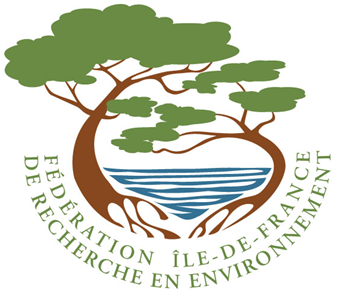Located in Fontainebleau, the Geosciences and Geoengineering Research Department, a research and teaching structure common to MINES Paris and ARMINES contract research association, develops its activities in Earth and Environment Sciences. Its research skills cover geology, geotechnics, geophysics, geostatistics, hydrogeology, geochemistry, engineering geology and geomechanics.
The director of the Geosciences Department is Hedi Sellami (assistant director : Vincent Lagneau).
Its research topics cover various issues such as the exploitation of mineral raw materials and fossil fuels, underground storage, the management of water resources, the study of anthropogenised environments and natural hazards.
The Department takes part in further teachings : civil engineers of MINES Paris, PhD teachings, specialized and continuous trainings.
The Department's research skills cover almost all disciplines of Earth Sciences. They are organized into six research teams.
The Geology team:
The Geology team works on the understanding of surface systems and on couplings with crust structures through an approach ensuring a link between field analysis and modelling. The team is internationally well known for its works related to the response of sedimentary systems to tectonoclimatic forcings and fluid-rock interactions.
Besides its research activities, the team largely contributes to the teaching of Earth sciences, the civil engineering teaching and the M2 Lithosphere Basins Oil. M2 and PhD students are also welcomed for training sessions.
The Engineering Geology and Geomechanics team:
The works of the Engineering Geology and Geomechanics group concern two major research topics :
1. Underground exploitation and management
•understanding and simulation of the behaviour of rocks and geomaterials
•underground exploitation techniques
•organisation, planning and assessment of underground projects
2. Geotechnical hazards and risks
•natural hazards and risks (drought, floods, slope stability …)
•underground-related hazards and risks (after-mine, cavities, works …)
In addition, the group has in Pau (Pyrénées-Atlantiques) a site fully devoted to storage studying.
The geophysics team:
The Geophysics group conducts its research in relation to the seismic imagery of the subsurface. Its main activities deal with :
•the imagery of complex areas of the close subsurface (travel time tomography, inversion of waveforms, ...)
•seismic imagery in the field of curvelet
The industrial sectors concerned by these topics are :
•the oil industry
•the civil engineering
•seismology
The Geostatistics team:
The Geostatistics group has a very various activity in probabilities and statistics, traditionally focused on the development of geostatistical methods, in close conjunction with application fields, including – but not exclusively – in geosciences.
The Reactive Hydrodynamics team:
This fundamentally multidisciplinary team is composed of specialists in chemistry, hydrodynamics, mathematics and/or modelling. Its expertise is recognized in various research fields related to environmental problems (polluted sites and soils, surface water contamination, industrial waste, tailings, CO2 geological storage, mining exploitation by in situ leaching ...) and to industrial problems (durability of cement materials, steels, polymers, process optimization ...).
The Hydrologic Systems and Reservoirs team:
The research topics of the Hydrologic Systems and Reservoirs group deal with the water cycle, more precisely the interactions between its various components and the consequences of anthropogenic nuisance on this system :
•modelling of surface and underground flows, climatic protections ;
•solute and / or energy migration ;
•diffuse or occasional contaminations.

